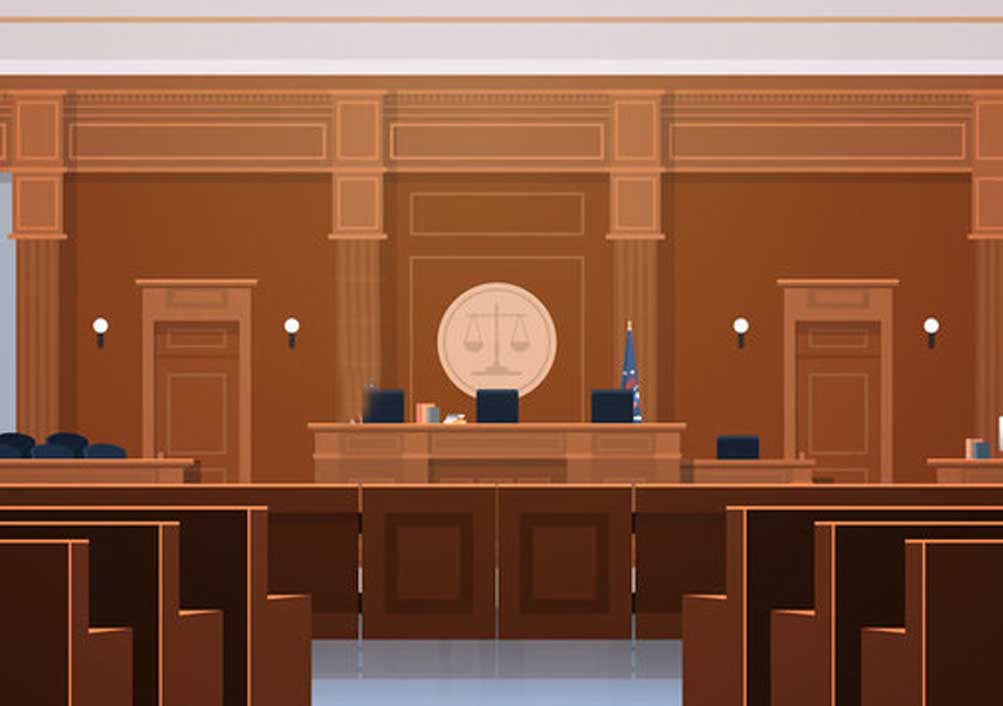In Writ Petition No. 3879 Of 2021-BOM HC- Bombay HC rejects Satara Bar Association’s petition challenging establishment of Courts at Wai, says interest of litigants is paramount Justices G.S.Patel & Madhav J Jamdar[22-03-2022]

Read Order: The Satara District Bar Association Satara v. State of Maharashtra and ors
Tulip Kanth
Mumbai, April 2, 2022: Observing that the establishment of a Court in close proximity cannot really be said to be an undesirable thing to litigants who are in the vicinity of the proposed Court, the Bombay High Court has dismissed the Writ Petition filed by the Satara District Bar Association, under Article 226 of the Constitution of India challenging the approvals relating to the establishment at Wai in the Satara District of a Court of an Additional District Judge and a Court of a Civil Judge, Senior Division.
Stressing on the importance of speedy and timely delivery of justice and physical access to justice, the Division Bench of Justice G.S.Patel and Justice Madhav J Jamdar affirmed,”There is no reason why a litigant should, on the Petitioners representation be required to travel 35 kms from Wai to Satara rather than have a Court in Wai itself; or to travel 55 kms from Khandala to Satara instead of 27 kms from Khandala to Wai or 60 kms from Mahabaleshwar to Satara rather than 33 kms from Mahabaleshwar to Wai.”
In the petition, it was mainly recited that the Bar Associations at Wai and Phaltan were making representations to the High Court to establish a District Court and a Court of a Civil Judge, Senior Division at those places. The High Court had accepted the representation of the Wai Bar Association and sanctioned the establishment of Courts at Wai to cover the Talukas of Wai, Khandala and Mahabaleshwar.
The main thrust of this representation for reconsideration was that the mere pendency of cases cannot be a determinative criterion for approving the establishment of a new courtIt was also said therein that if the proposal is accepted, greater convenience and hardship will be caused to litigants in Khandala and Mahabaleshwar.
The petitioner had also filed an application under the Right to Information Act and received some documents pertaining to the administrative approvals. The Public Information Officer responded to that query by providing some information and by saying that the remainder was exempted under Section 8(e) of the RTI Act being information protected from disclosure as it was in the nature of fiduciary relationship. An Affidavit dated March 21, 2022 clearly stated that only the file notings made by the Judges as members of the Committee were not disclosed. All other information was given.
Accepting this explanation , the High Court cautioned the PIOs to be more accurate in their responses when any information is sought to be withheld as exempt for disclosure requirements and highlighted that there is certainly an element of confidentiality in the notings by Judges of any Committee of this Court.
Calling attention to the fact that the actual material may be disclosed pursuant to an RTI enquiry as along with the final decision, the Bench added that the file notings are only transitory and tentative views and an exchange of views. These should under no circumstances be allowed to be brought into public domain or be made the subject of any controversy.
The Division Bench made it very clear that the High Court took into account other factors down to details such as adequacy of accommodation for judicial officers in Wai and it was only on being satisfied that there were all feasibilities that it made its proposal. To say, therefore, that the High Court considered nothing except pendency of cases was factually incorrect and was demonstrated to be incorrect on the record itself.
The Court further went on to say, “The High Court on its administrative side is primarily concerned with the administration of justice in its widest possible sense. It makes no difference whether the High Court first formulates a proposal and then places it before the Government for an opinion or whether the proposal comes from the Government. Nothing can possibly turn on this. It is clear that operationally neither the High Court nor the State Government can go around establishing Courts on their own without the involvement of the other. That is all that needs to be said in this regard. The High Court’s view in any case has primacy.”
Pointing out that the biggest problem in this matter was that it was unclear what was the legal right that the Petitioner was asserting when it said that this High Court should not consider establishing a Court at Wai. It seemed to the High Court that this was entirely self-serving.
Without denying that fact the Bar has a role to play in the administration of justice, the Division Bench however emphatically asserted that it is the interest of the litigants that is paramount and the role of the Court and all those who enable its functioning, whether Judges or lawyers, are meant to assist the delivery of justice to the litigant.
Thus, holding the petition to be meritless, the High Court rejected the same.
Sign up for our weekly newsletter to stay up to date on our product, events featured blog, special offer and all of the exciting things that take place here at Legitquest.




Add a Comment